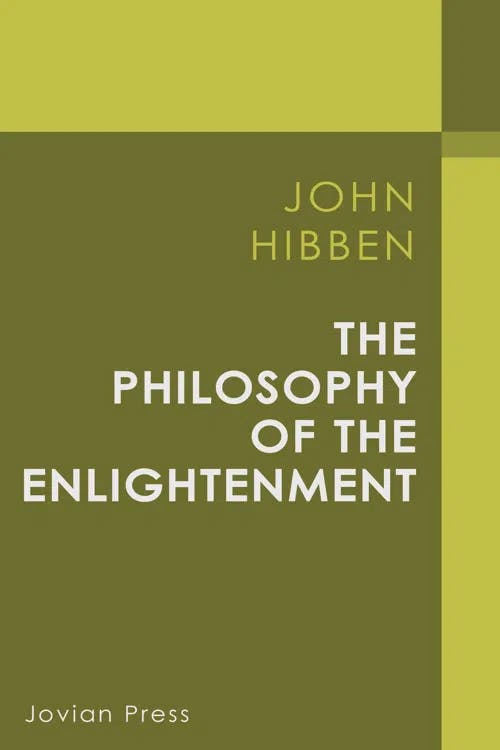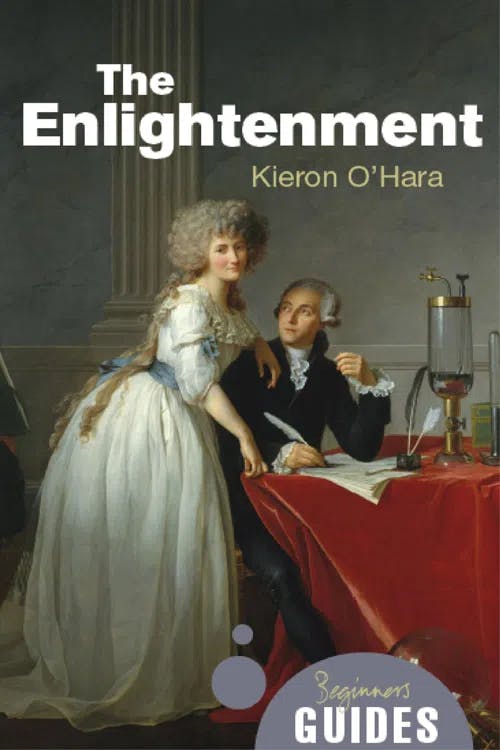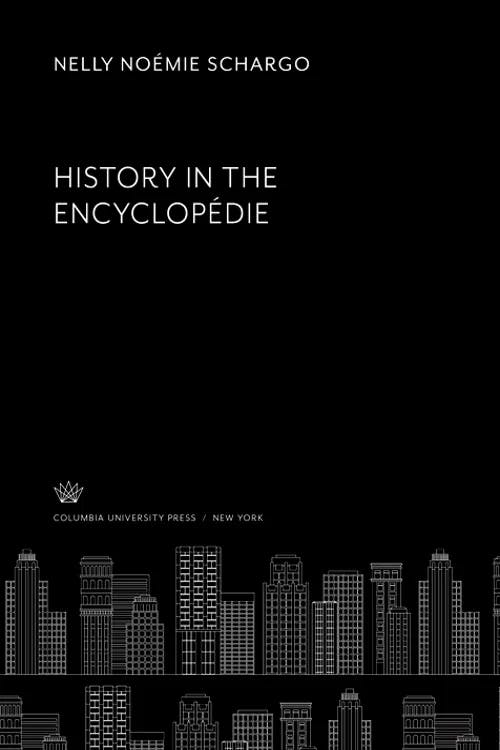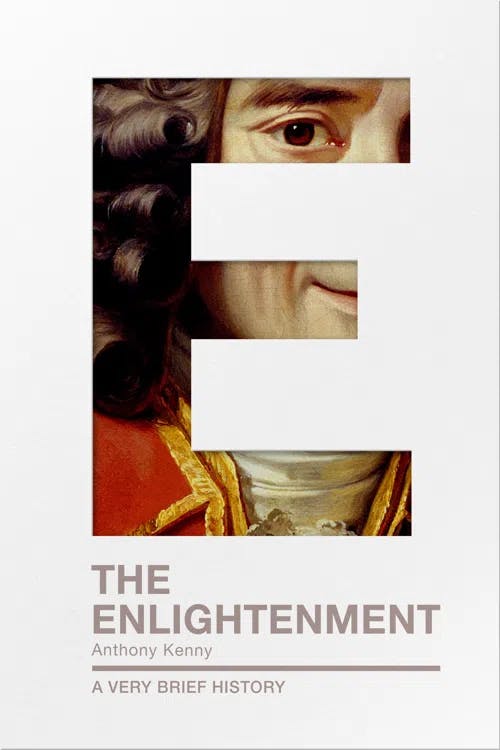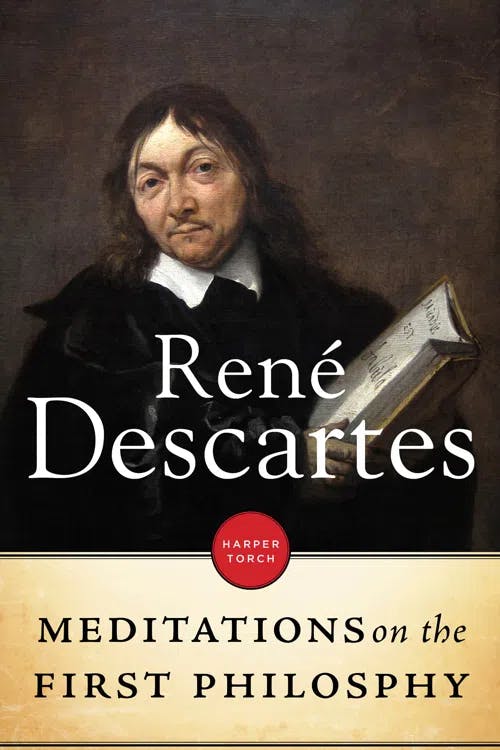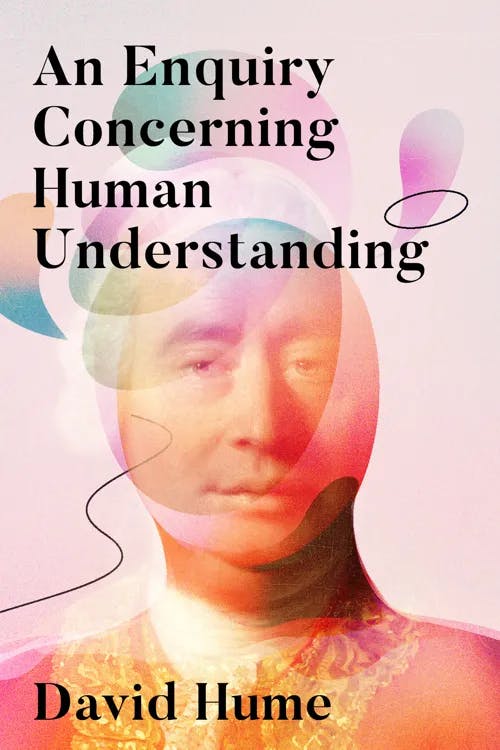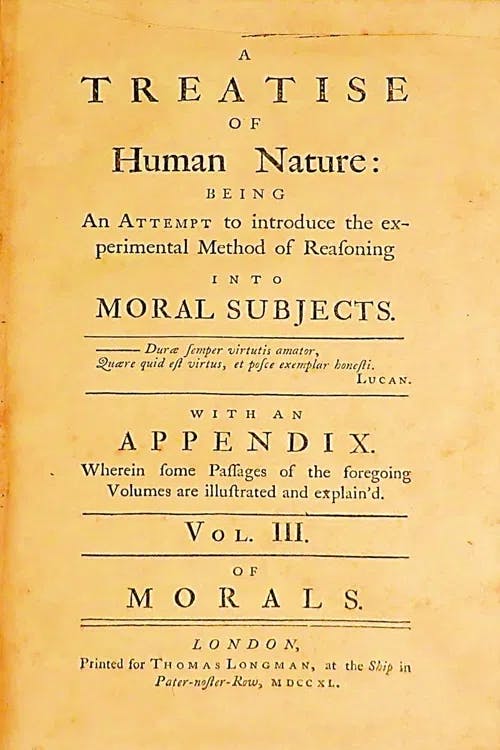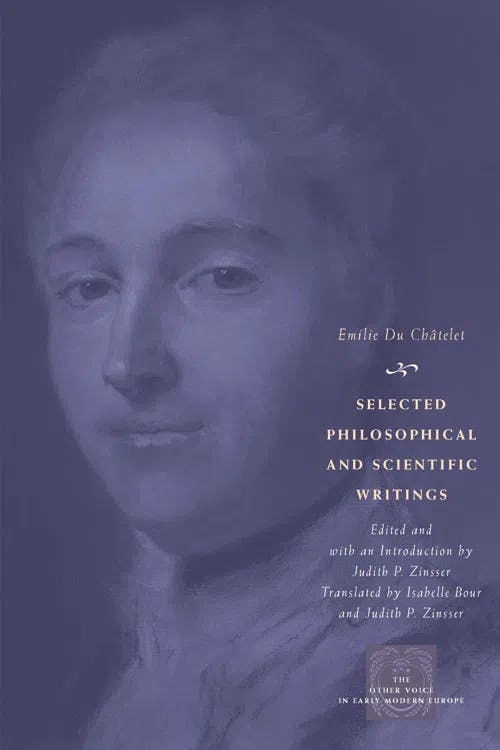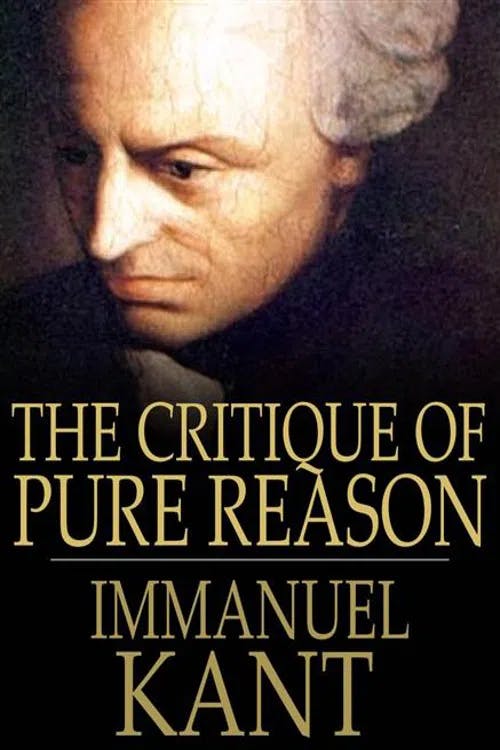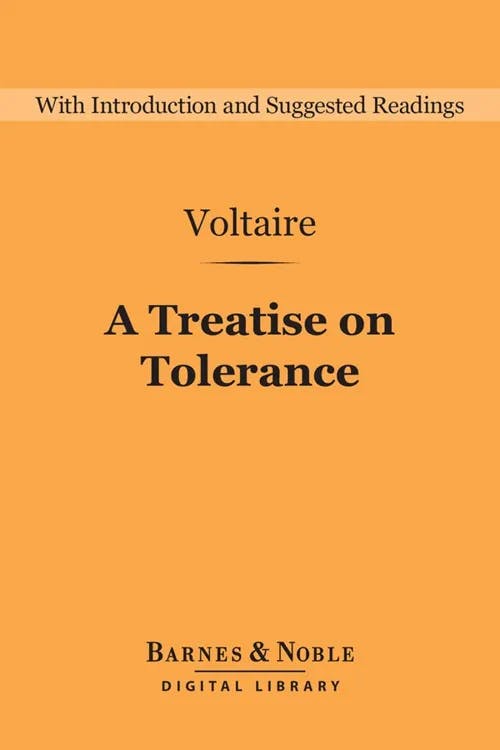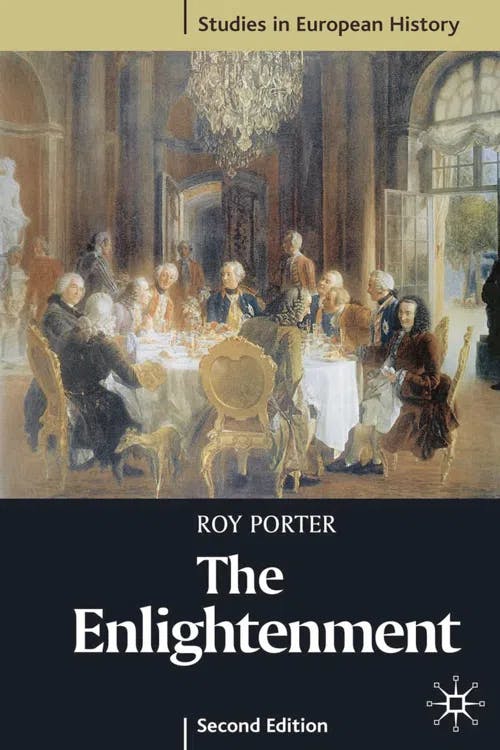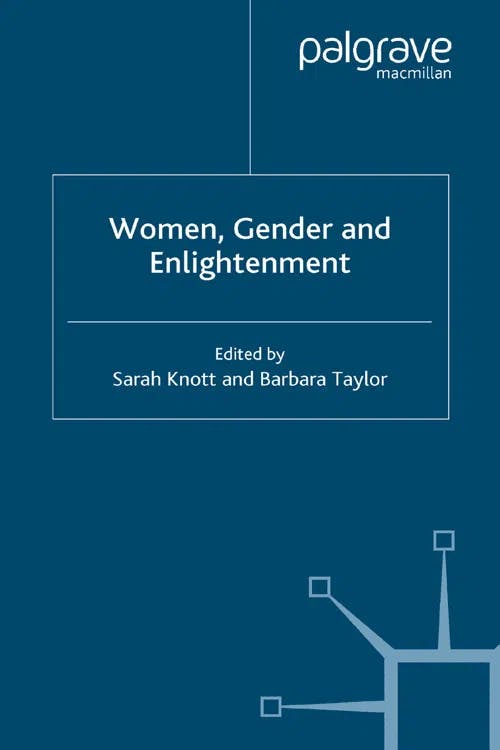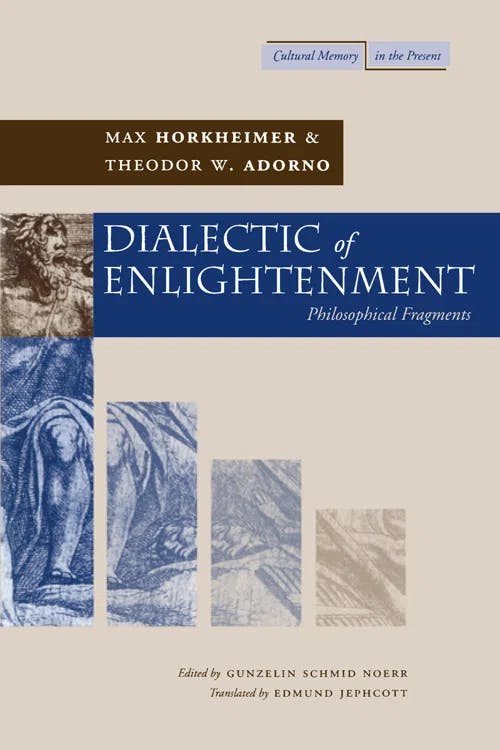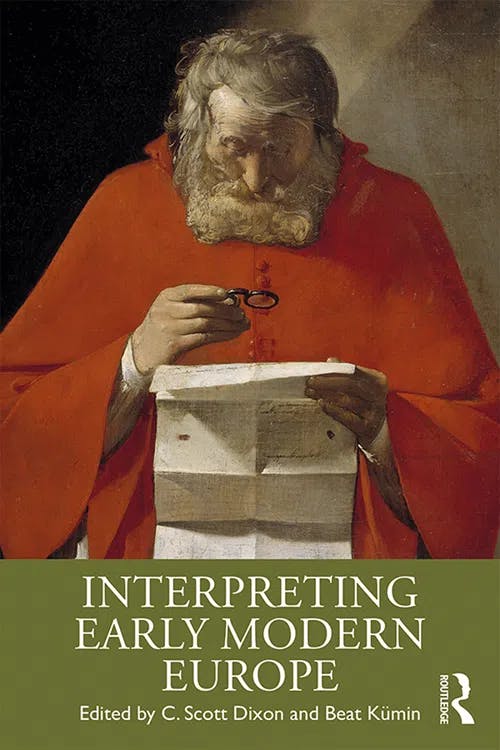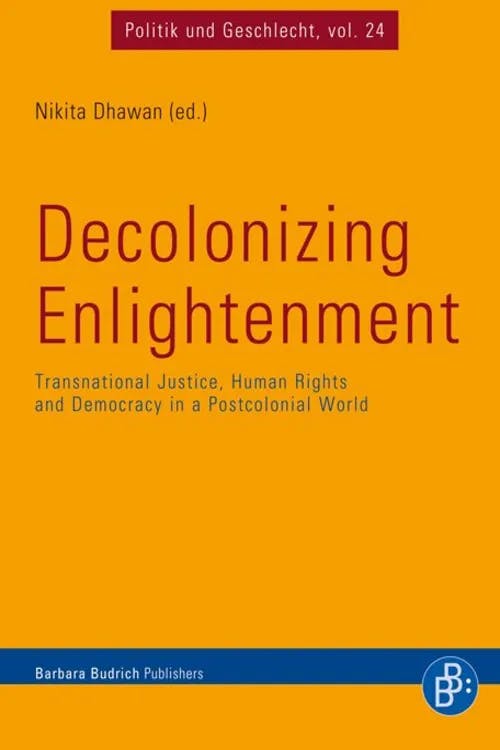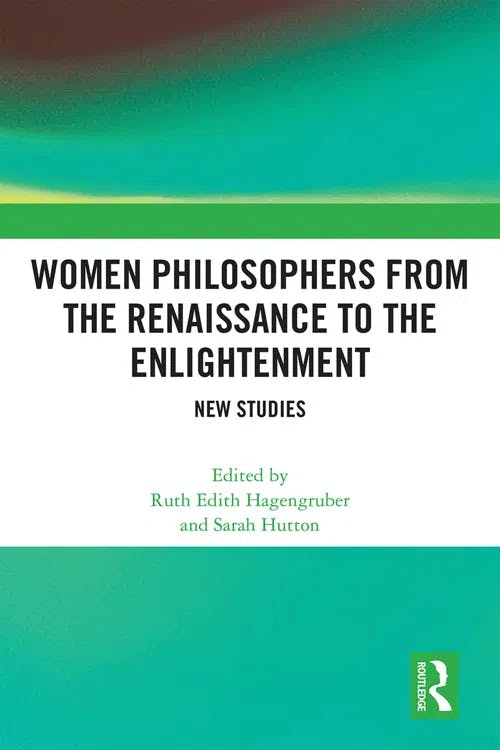What is the Enlightenment?
PhD, English Literature (Lancaster University)
Date Published: 28.02.2024,
Last Updated: 16.07.2024
Share this article
Definition and origins
The Enlightenment, also known as the Age of Reason, was a philosophical movement in the seventeenth and eighteenth centuries in Europe, emphasizing rationality and the power of individuals to use their reason to make sense of the world. The Enlightenment saw a shift from the authority of religion and the monarchy, towards science and empiricism. The Enlightenment, above all, valued progress, freedom, democracy, tolerance, and the pursuit of knowledge. Though there is disagreement as to whether the Enlightenment marked the beginning of the modern era, it is generally accepted that the Enlightenment was a foundational moment within modernity.
As John Hibben writes,
It was an age characterised by a restless spirit of inquiry — a century of challenge. A new life was awake and stirred in the minds of men. Traditions which had been long venerated became the objects of searching investigation and criticism. The authority of the church, of the state and of the school was no longer regarded as the court of last appeal. The old beliefs which failed to justify themselves at the bar of reason were discarded. The foundations of time-honoured systems seemed shifting and uncertain. There was an insistent demand for the free play of the individual judgment. There was, also, a constant reference to the light of reason, the inner illumination shining bright and clear in contrast to the shadows of mysticism, or to the false and flickering light of dogmatism. (2018)
John Hibben
It was an age characterised by a restless spirit of inquiry — a century of challenge. A new life was awake and stirred in the minds of men. Traditions which had been long venerated became the objects of searching investigation and criticism. The authority of the church, of the state and of the school was no longer regarded as the court of last appeal. The old beliefs which failed to justify themselves at the bar of reason were discarded. The foundations of time-honoured systems seemed shifting and uncertain. There was an insistent demand for the free play of the individual judgment. There was, also, a constant reference to the light of reason, the inner illumination shining bright and clear in contrast to the shadows of mysticism, or to the false and flickering light of dogmatism. (2018)
Keiron O’Hara identifies six characteristics of the Enlightenment:
1. A reliance upon the natural faculties of the individual to understand the world, society and our fellow man, at the expense of tradition, authority or (Biblical) revelation.
2. An increasing confidence about human control of the world, optimism about progress and a belief in the providence of a reasonable and benevolent God.
3. Scepticism, including scepticism about (1) and (2) above.
4. The importance of reason, of universal principles over local ones and of truth as a value.
5. A focus on personal goods such as happiness and Enlightened self-interest, based on theories of human nature.
6. A focus on the beliefs of the highly educated minority.
(2012)
Kieron O'Hara
1. A reliance upon the natural faculties of the individual to understand the world, society and our fellow man, at the expense of tradition, authority or (Biblical) revelation.
2. An increasing confidence about human control of the world, optimism about progress and a belief in the providence of a reasonable and benevolent God.
3. Scepticism, including scepticism about (1) and (2) above.
4. The importance of reason, of universal principles over local ones and of truth as a value.
5. A focus on personal goods such as happiness and Enlightened self-interest, based on theories of human nature.
6. A focus on the beliefs of the highly educated minority.
(2012)
While it can be difficult to pinpoint a specific date range for the Enlightenment, it is generally accepted that it began around 1680. Some historians argue it ended in 1789 with the French Revolution, while others suggest it in fact ended with the beginning of the Napoleonic Wars and the death of Enlightenment thinker Immanuel Kant in 1804.
This guide will explore some of the key features of the Enlightenment, including the introduction of new sources of authority, the pursuit of scientific progress, and new ideas about social organization and religion.
New sources of authority
As O’Hara discusses, Enlightenment thinkers (known as “philosophes” in France) challenged pre-existing forms of authority and encouraged individuals to use their critical thinking and capacity for reason to make sense of the world. As Immanuel Kant argued in his essay “An Answer to the Question: ‘What Is Enlightenment?’”, “Enlightenment is man’s release from his self-incurred tutelage” (1784, [2017]):
Tutelage is man’s inability to make use of his understanding without direction from another. Self-incurred is this tutelage when its cause lies not in lack of reason but in lack of resolution and courage to use it without direction from another. Sapere aude! “Have courage to use your own reason!” – that is the motto of enlightenment.
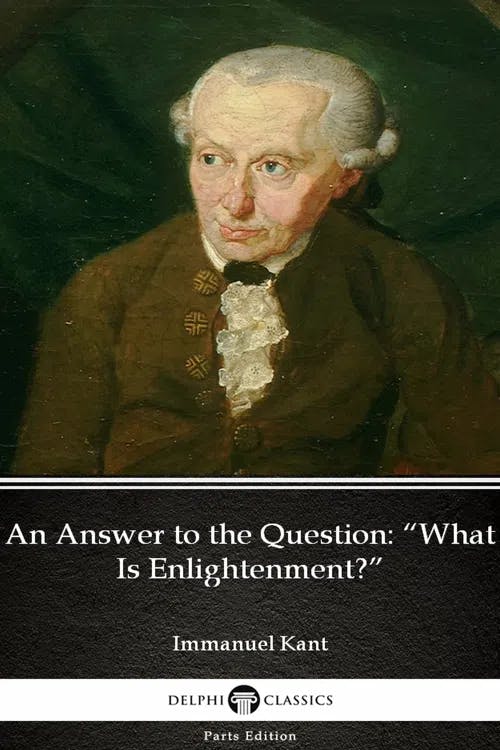
An Answer to the Question: "What Is Enlightenment?"
Immanuel Kant
Tutelage is man’s inability to make use of his understanding without direction from another. Self-incurred is this tutelage when its cause lies not in lack of reason but in lack of resolution and courage to use it without direction from another. Sapere aude! “Have courage to use your own reason!” – that is the motto of enlightenment.
With this, new scientific and philosophical approaches disrupted the status quo — and we will cover the specifics of these approaches throughout this guide.
If thinkers like Kant were suggesting that dogmatic authorities (such as organized religion and the state) should not be relied upon, then they would need to provide alternative sources of verifiable, unbiased knowledge. From this noble pursuit, the Encyclopédie was created.
First published in France between 1751 and 1772, the Encyclopédie (edited by Denis Diderot and Jean le Rond d'Alembert) comprised 28 volumes and 70,000 articles written by over 140 contributors — these contributors and editors became known as “the Encyclopedists.” As Nelly Noémie Schargo explains in History in the Encyclopédie, many of the historical entries in the Encylopédie were not new material, but their approach “had a novel tint to it” (2019). Schargo goes on to state,
Their importance does not lie in new material uncovered. It lies in the significance which they assigned to scientific method in history, a method which the following century believed it alone had discovered. It lies in the angle in which the Encyclopedists present the historical prism; it lies in the enthusiasm which they express so often for this branch of human knowledge; it lies in the importance which they assign to history in the intellectual scheme of things. (2019)
Nelly Noémie Schargo
Their importance does not lie in new material uncovered. It lies in the significance which they assigned to scientific method in history, a method which the following century believed it alone had discovered. It lies in the angle in which the Encyclopedists present the historical prism; it lies in the enthusiasm which they express so often for this branch of human knowledge; it lies in the importance which they assign to history in the intellectual scheme of things. (2019)
With its dedication to the advancement of human knowledge, and its determination to pass on that knowledge to future generations, the Encyclopédie epitomizes the spirit of the Enlightenment.
Social organization and natural rights
Enlightenment thinkers aimed to better the human condition through the pursuit of knowledge, progress, and the ordering of society in a way which promoted freedom. As such, many spoke out against absolute monarchies and unjust and arbitrary laws, putting forth their own views as to how society should be organized in a way that both promoted liberty and maintained order:
In matters of politics, enlightenment thinkers shared a common antipathy to arbitrary rule and its various manifestations: judicial torture, imprisonment without trial, proliferation of capital punishments and corruption of tribunals. However, the path to reform they proposed differed from one country to another depending on the nature of the status quo. Where there was an absolute monarch, his or her power should be subjected to some external restraint, if only by allowing their subjects freedom of speech. In a constitutional monarchy, and even in a republic, there must be a separation of powers between executive, legislature and judiciary. (Anthony Kenny, 2017)
Anthony Kenny
In matters of politics, enlightenment thinkers shared a common antipathy to arbitrary rule and its various manifestations: judicial torture, imprisonment without trial, proliferation of capital punishments and corruption of tribunals. However, the path to reform they proposed differed from one country to another depending on the nature of the status quo. Where there was an absolute monarch, his or her power should be subjected to some external restraint, if only by allowing their subjects freedom of speech. In a constitutional monarchy, and even in a republic, there must be a separation of powers between executive, legislature and judiciary. (Anthony Kenny, 2017)
John Locke’s Two Treatises of Government (1689), for example, criticizes the concept of an absolute monarchy. In this work, he focuses on Robert Filmer’s Patriarcha (1680) as a starting point. Filmer’s book emphasized the infallibility of monarchs and the divine right of kings, arguing that the State’s authority came from Biblical patriarchs, originating with Adam. Locke vehemently disagreed with Filmer and argued that there are no divine rights, but natural rights which all individuals are granted by God; these rights include life, liberty, health, and property.
Locke believed that no monarch or form of government could override these natural rights:
The state of nature has a law of nature to govern it, which obliges every one: and reason, which is that law, teaches all mankind, who will but consult it, that being all equal and independent, no one ought to harm another in his life, health, liberty, or possessions. (1689, [2014])
John Locke
The state of nature has a law of nature to govern it, which obliges every one: and reason, which is that law, teaches all mankind, who will but consult it, that being all equal and independent, no one ought to harm another in his life, health, liberty, or possessions. (1689, [2014])
Locke felt society should be governed by the consent of the people. Locke’s concept of natural rights is at the core of liberalism.
Locke’s discussions of natural rights led to feminists of the period arguing that such principles should apply to women also. Feminists such as Mary Wollstonecraft, for example, highlighted that if such natural rights were given to rational beings, then women should also have the same inalienable rights. In Wollstonecraft’s A Vindication of the Rights of Women (1792, [2022]), she argues that women should be given these rights and be able to seek education in the pursuit of knowledge.
In Feminist Theory (2012), Josephine Donovan outlines the arguments from liberal feminists that they should be included in the natural rights doctrine and, subsequently, be allowed the same rights as men. Namely, that men and women as rational beings are “ontologically identical,” that women also seek truth and knowledge, and that their dignity relies upon being granted independence.
For more information, see our guide “What is Liberal Feminism?”
Another key figure in discussing social organization was Baron de Montesquieu. In The Spirit of Laws (1748), he argued that political authority should be divided into separate legislative, executive, and judicial powers.
Skepticism
The questioning of assumptions about science, philosophy, and truth is at the center of Enlightenment thought. The Enlightenment encouraged skepticism (i.e., the questioning of our knowledge and assumptions) as a way to evaluate previous schools of thought. In Meditations on the First Philosophy (1641, [2013]), Descartes highlights the usefulness of doubt, laying the foundations for much of Enlightenment thought:
although the utility of a doubt so general may not be manifest at first sight, it is nevertheless of the greatest, since it delivers us from all prejudice, and affords the easiest pathway by which the mind may withdraw itself from the senses; and, finally, makes it impossible for us to doubt wherever we afterwards discover truth.
René Descartes
although the utility of a doubt so general may not be manifest at first sight, it is nevertheless of the greatest, since it delivers us from all prejudice, and affords the easiest pathway by which the mind may withdraw itself from the senses; and, finally, makes it impossible for us to doubt wherever we afterwards discover truth.
Skepticism is most commonly associated with the Scottish philosopher David Hume. Hume refers to skepticism as a
[...] universal doubt, not only of all our former opinions and principles, but also of our very faculties; of whose veracity, say they, we must assure ourselves, by a chain of reasoning, deduced from some original principle, which cannot possibly be fallacious or deceitful. (1748, [2020])
David Hume
[...] universal doubt, not only of all our former opinions and principles, but also of our very faculties; of whose veracity, say they, we must assure ourselves, by a chain of reasoning, deduced from some original principle, which cannot possibly be fallacious or deceitful. (1748, [2020])
Hume thus posits this question: How do we know what is true? Epistemology, the study of knowledge, is a crucial branch of philosophy.
Skepticism makes us question our beliefs and their sources. We have reason to doubt our knowledge, according to Hume, due to the problem of inductive reasoning. Inductive reasoning describes reasoning formed upon the basis of experience. For example, we reason that the sun will rise tomorrow as it has always risen. However, we have no guarantee this will happen in the future.
In A Treatise of Human Nature (later developed and expanded into An Enquiry Concerning Human Understanding and An Enquiry Concerning the Principles of Morals, 1751), Hume argues that no scientific method is infallible:
all knowledge degenerates into probability; and this probability is greater or less, according to our experience of the veracity or deceitfulness of our understanding, and according to the simplicity or intricacy of the question.
There is no Algebraist nor Mathematician so expert in his science, as to place entire confidence in any truth immediately upon his discovery of it, or regard it as any thing, but a mere probability. (1739, [2019])
David Hume
all knowledge degenerates into probability; and this probability is greater or less, according to our experience of the veracity or deceitfulness of our understanding, and according to the simplicity or intricacy of the question.
There is no Algebraist nor Mathematician so expert in his science, as to place entire confidence in any truth immediately upon his discovery of it, or regard it as any thing, but a mere probability. (1739, [2019])
Hume goes on to explain that, due to our reliance on probability, we are likely to make a mistake when we reach conclusions.
For more on David Hume, skepticism and reasoning, see our guide “What is Empiricism?”
Emilie Du Châtelet argued that one way of arriving at the truth is by creating a hypothesis which can then be tested. In her work The Foundations of Physics (1740), she wrote that
There must be a beginning in all researches, and this beginning must almost always be a very imperfect, often unsuccessful attempt. There are unknown truths just as there are unknown countries to which one can only find the good route after having tried all the others. Thus, some must run the risk of losing their way in order to mark the good path for others; so it would be doing the sciences great injury, infinitely delaying their progress, to banish hypotheses as some modern philosophers have. (Du Châtelet, 1740, in Selected Philosophical and Scientific Writings, 2009)
Emilie Du Châtelet
There must be a beginning in all researches, and this beginning must almost always be a very imperfect, often unsuccessful attempt. There are unknown truths just as there are unknown countries to which one can only find the good route after having tried all the others. Thus, some must run the risk of losing their way in order to mark the good path for others; so it would be doing the sciences great injury, infinitely delaying their progress, to banish hypotheses as some modern philosophers have. (Du Châtelet, 1740, in Selected Philosophical and Scientific Writings, 2009)
Two approaches to knowledge which engage with the doubt that skepticism raises are rationalism and empiricism.
Rationalism and empiricism
Rationalism holds that we acquire knowledge through reason and logic. Rationalism in this period was inspired by the writings of René Descartes, later developed by Enlightenment thinkers such as Voltaire and Kant. Descartes believed that the only real unshakeable truth was of our own existence, due to our ability to think and doubt, epitomized in his famous phrase “I think, therefore, I am” Discourse on the Method (1637, [2015]). (For more on this, see our study guide “What is Rationalism?”)
In opposition to rationalism is empiricism, the belief that knowledge is derived from our senses, observations, and experiences. Though Enlightenment thinkers privileged reason, they did not see it as the source of all knowledge, with many favoring the empiricist approach.
Francis Bacon is seen as the father of this school of thought. In perhaps his most famous work Novum Organum (1620, [2016]), Bacon argues that the sciences should utilize the method of induction, and be based on observation and experimentation. This inductive method (i.e., an approach based on observation) was famously employed by Isaac Newton in The Principia (1687, [2016]). This scientific approach marked a radical departure from previous methods and is one we still use today.
John Locke was a significant proponent of empiricism. In An Essay Concerning Human Understanding, (1689, [2013]), Locke argues that humans do not have any innate knowledge, capacity for reason, or sense of morality. Instead, we are a “blank slate” and all our knowledge is derived from experience. While Locke agrees with Descartes that we cannot solely rely on our senses, he argues that our senses are still valuable in our search for truth and knowledge.
Hume builds upon the work of Locke and argues that the human mind has the capacity to make generalizations and form concepts. Though Hume agrees we are blank slates, he argues that when we encounter something we build a mental category; this mental category becomes more complex and refined through our experiences (1748, [2020]).
It is worth noting that not every philosopher fell squarely into the camps of rationalism or empiricism. As Immanuel Kant writes in The Critique of Pure Reason,
All our knowledge begins with sense, proceeds thence to understanding, and ends with reason, beyond which nothing higher can be discovered in the human mind for elaborating the matter of intuition and subjecting it to the highest unity of thought. (1781, [2009])
Immanuel Kant
All our knowledge begins with sense, proceeds thence to understanding, and ends with reason, beyond which nothing higher can be discovered in the human mind for elaborating the matter of intuition and subjecting it to the highest unity of thought. (1781, [2009])
In other words, Kant believed that experience forms the starting point for knowledge. From that, we can use reason to reach logical conclusions.
Religious intolerance
Enlightenment thinkers sought to challenge religious authority and religious intolerance. The Enlightenment was partially a reaction to religious conflict in Europe, typified by the Thirty Years’ War (1618–48). Enlightenment thinkers reflected upon such events and many found that the church’s dogmatic approach would inevitably result in more violence and conflict in the future. Deism (the belief in God, but a rejection of religious figures as a source of divine revelation) and atheism also gained traction in this period.
One of the most important works on religious intolerance is The Treatise on Tolerance (1763, [2012]), written by Voltaire. Here, Voltaire writes on religious persecution, focusing on the story of a merchant, Jean Calas, who was tortured and executed for the alleged murder of his son. Rumors were spread that the motive for the murder was that Calas feared his son would convert to Catholicism. Calas was later exonerated (followed by a campaign involving Voltaire) and became symbolic of religious persecution. Voltaire uses the case to condemn the violence that has been wrought due to religious differences:
The law of persecution [...] is equally absurd and barbarous; it is the law of tigers; nay, it is even still more savage, for tigers destroy only for the sake of food, whereas we have butchered one another on account of a sentence or a paragraph. (1763, [2012])
Voltaire
The law of persecution [...] is equally absurd and barbarous; it is the law of tigers; nay, it is even still more savage, for tigers destroy only for the sake of food, whereas we have butchered one another on account of a sentence or a paragraph. (1763, [2012])
He further argues that it is irrational to expect everyone to have the same religion or belief system:
It would be the height of madness to pretend to bring all mankind to think exactly in the same manner in regard to metaphysics. We might, with much greater ease, subject the whole universe by force of arms than subject the minds of all the inhabitants of one single village. (Voltaire, 1763, [2012])
Voltaire’s work can be summarized in his statement: “The fewer dogmas, the fewer disputes; and the fewer disputes, the fewer calamities” (1763, [2012]).
Critiques of the Enlightenment
The Enlightenment seems to have found critics in every age. As Roy Porter states in The Enlightenment,
The ‘Age of Reason’ found few friends in the nineteenth century. Romantics judged it soulless, conservatives thought it too radical, while radicals in turn were distressed to find its leaders, notably Voltaire, were at bottom worldly elitists, salon talkers rather than revolutionary activists. Only in the twentieth century, when the true complexities of the relations between ideology and action have forced themselves upon us, have the subtle ironies of the Enlightenment come to be appreciated. (2019)
Roy Porter
The ‘Age of Reason’ found few friends in the nineteenth century. Romantics judged it soulless, conservatives thought it too radical, while radicals in turn were distressed to find its leaders, notably Voltaire, were at bottom worldly elitists, salon talkers rather than revolutionary activists. Only in the twentieth century, when the true complexities of the relations between ideology and action have forced themselves upon us, have the subtle ironies of the Enlightenment come to be appreciated. (2019)
Even today, the Enlightenment still draws criticism — as Sarah Knott and Brenda Taylor summarize in Women, Gender and Enlightenment:
Enlightenment is contentious. Once an age of reason, tolerance and emancipation, today it is routinely characterised as repressive and incipiently totalitarian [...]. (2005)
Edited by Sarah Knott and Barbara Taylor
Enlightenment is contentious. Once an age of reason, tolerance and emancipation, today it is routinely characterised as repressive and incipiently totalitarian [...]. (2005)
Though the movement had its foundations in knowledge, freedom, and progress, it has since become associated with totalitarianism and imperialist ideologies. Moreover, the Enlightenment period has faced criticisms for its lack of gender inclusivity.
Totalitarianism and Dialectic of Enlightenment
In Dialectic of Enlightenment, Frankfurt School philosophers Max Horkheimer and Theodor W. Adorno argue,
For the Enlightenment, whatever does not conform to the rule of computation and utility is suspect. So long as it can develop undisturbed by any outward repression, there is no holding it. In the process, it treats its own ideas of human rights exactly as it does the older universals. Every spiritual resistance it encounters serves merely to increase its strength. [...] Enlightenment is totalitarian. (1944, [2002])
Max Horkheimer and Theodor W. Adorno
For the Enlightenment, whatever does not conform to the rule of computation and utility is suspect. So long as it can develop undisturbed by any outward repression, there is no holding it. In the process, it treats its own ideas of human rights exactly as it does the older universals. Every spiritual resistance it encounters serves merely to increase its strength. [...] Enlightenment is totalitarian. (1944, [2002])
Despite its ideals of humanism and freedom, Adorno and Horkheimer argue that the Enlightenment has resulted in the domination of individuals within society.
As Dorinda Outram explains, Horkheimer and Adorno’s argument resulted in a “hostile interpretation of the Enlightenment”:
it was easy then to support the view that the Enlightenment’s allegedly ‘instrumental’, value-free, ends-orientated reason had led not only to the Holocaust, but to the exploitation of nature, and exploitative attitudes towards women and non-European races. (“Enlightenment Struggles,” in Interpreting Early Modern Europe, 2019)
Edited by C. Scott Dixon and Beat Kümin
it was easy then to support the view that the Enlightenment’s allegedly ‘instrumental’, value-free, ends-orientated reason had led not only to the Holocaust, but to the exploitation of nature, and exploitative attitudes towards women and non-European races. (“Enlightenment Struggles,” in Interpreting Early Modern Europe, 2019)
However, as Outram explains, the Enlightenment was not a “unified movement of thought” and in fact:
Ideas were often not carried to their logical conclusions, and practice and theory often swung widely away from each other. Beliefs about the inferiority of women and non-white races, for example, were difficult to fit into Enlightenment generalisations about the dignity of humanity, and human rights. This may also go far to explain the ‘interpretative overload’ which we have noted before. All who wished could find in the Enlightenment a hook for their own views, or fulfil their interpretative needs in the construction of a world philosophy or outlook, whether their views of the Enlightenment were positive or not. (2019)
Eurocentrism and racism
The Enlightenment is often criticized by postcolonial scholars who argue that the ideology spawned from these philosophers resulted in the further oppression of non-Europeans around the globe:
Enlightenment ideology also included explicitly racialised thinking about non-Europeans, whose religions, cultures, and attributes were seen as encompassing a different ‘race’ to that of Europeans. [...] The Enlightenment gave rise to an ‘Us-and-Them’ system of thinking which still dominates understandings of the world and its peoples. (Masoud Kamali, 2016)
Masoud Kamali
Enlightenment ideology also included explicitly racialised thinking about non-Europeans, whose religions, cultures, and attributes were seen as encompassing a different ‘race’ to that of Europeans. [...] The Enlightenment gave rise to an ‘Us-and-Them’ system of thinking which still dominates understandings of the world and its peoples. (Masoud Kamali, 2016)
This Eurocentric mentality gave rise to Orientalism and Social Darwinism:
[...] as has been pointed out by both scholars of Postcolonial Studies as well as Holocaust Studies, Enlightenment’s promise of attaining freedom through the exercise of reason has ironically resulted in domination by reason itself. Along with progress and emancipation, it has brought colonialism, slavery, genocide, and crimes against humanity. (Nikita Dhawan, 2014)
Edited by Nikita Dhawan
[...] as has been pointed out by both scholars of Postcolonial Studies as well as Holocaust Studies, Enlightenment’s promise of attaining freedom through the exercise of reason has ironically resulted in domination by reason itself. Along with progress and emancipation, it has brought colonialism, slavery, genocide, and crimes against humanity. (Nikita Dhawan, 2014)
The pursuit of progress served as justification for imperialism and colonization. Imperialists in Europe often used the discourses of the Enlightenment, focusing on the advancement of knowledge and freedom in the West, which invariably resulted in colonizing and “civilizing” other nations.
For more on this, see our guide “What is Imperialism?”
Feminism
Despite the numerous achievements of women during the Enlightenment (particularly in the fields of science, mathematics, and philosophy), they were often omitted from Enlightenment discussions and have been comparatively neglected in contemporary research of the period. For example, in the French “Declaration of the Rights of Man and of Citizens” in 1789 (which included many ideas put forward by Enlightenment thinkers), there was no mention of the rights of women. Olympe de Gouges, a published playwright, in response wrote “Declaration of the Rights of Women and of the [Female Citizen]” (1791) which asserted that women had the same inalienable rights as men and must, as such, be made full citizens. In this letter, she writes,
Bizarre, blind, bloated with science and degenerated in this century of enlightenment and wisdom, in the grimiest ignorance, [man] wants to command as a despot over a sex which has been gifted with all intellectual faculties; he claims to rejoice in the Revolution, and claims his rights for equality, to say the least. (de Gouges, 1791, in Women's Rights and the French Revolution, 2017)
Sophie Mousset
Bizarre, blind, bloated with science and degenerated in this century of enlightenment and wisdom, in the grimiest ignorance, [man] wants to command as a despot over a sex which has been gifted with all intellectual faculties; he claims to rejoice in the Revolution, and claims his rights for equality, to say the least. (de Gouges, 1791, in Women's Rights and the French Revolution, 2017)
More recently, scholars have sought to amend this oversight and draw attention to the contributions of women during the Enlightenment. As Ruth Edith Hagengruber and Sarah Hutton write,
Today, the influence of women’s contributions to the political and liberal development of the Enlightenment can hardly be denied. The contributions of Margaret Cavendish, Elisabeth of Bohemia, Anne Conway, Emilie Du Châtelet, and Mary Wollstonecraft are no longer overlooked. The claims for equality in Wollstonecraft, Conway’s monist metaphysics, the vitalist materialism of Cavendish, and Du Châtelet’s synthesis of Leibniz and Newton are becoming more and more part of the intellectual narrative in the history of philosophy. (2021)
Edited by Ruth Edith Hagengruber and Sarah Hutton
Today, the influence of women’s contributions to the political and liberal development of the Enlightenment can hardly be denied. The contributions of Margaret Cavendish, Elisabeth of Bohemia, Anne Conway, Emilie Du Châtelet, and Mary Wollstonecraft are no longer overlooked. The claims for equality in Wollstonecraft, Conway’s monist metaphysics, the vitalist materialism of Cavendish, and Du Châtelet’s synthesis of Leibniz and Newton are becoming more and more part of the intellectual narrative in the history of philosophy. (2021)
The legacy of the Enlightenment
The Enlightenment has shaped the world as we know it. The values of liberty, freedom, and equality are cited as having inspired the French and American revolutions. In addition, the pursuit of knowledge saw the development of technology and mathematics, the implementation of the scientific method, and a questioning of previous ideas. Many of the ideas characteristic of this movement are still discussed today, such as the separation of powers, freedom of speech, and democratic accountability.
The Enlightenment is a crucial period in human history and the development of the modern world. Its promotion of human rights and scientific inquiry, alongside its questioning of traditional institutions and sources of authority, paved the way for greater social and political freedoms.
Further reading on Perlego
A Cultural History of Law in the Age of Enlightenment (2021) by Rebecca Probert and John Snape (eds.)
Enlightened Colonialism: Civilization Narratives and Imperial Politics in the Age of Reason (2017) by Damien Tricoire (ed.)
The Enlightenment: History, Documents, and Key Questions (2015) by William E. Burns
The Labor of the Mind: Intellect and Gender in Enlightenment Cultures (2017) by Anthony J. La Vopa
The Secular Enlightenment (2019) by Margaret Jacob
Enlightenment FAQs
What is the Enlightenment in simple terms?
What is the Enlightenment in simple terms?
What are some examples of Enlightenment values?
What are some examples of Enlightenment values?
Who are some key Enlightenment figures?
Who are some key Enlightenment figures?
Bibliography
Bacon, F. (2016) Novum Organum. Jazzybee Verlag. Available at: https://www.perlego.com/book/1071433/novum-organum
de Gouges, O. (2017) “Declaration of the Rights of Women and of the [Female Citizen]” in Mousset, S. (Ed.) Women's Rights and the French Revolution: A Biography of Olympe De Gouges. Routledge. Available at: https://www.perlego.com/book/1577302/womens-rights-and-the-french-revolution-a-biography-of-olympe-de-gouges
Descartes, R. (2013) Meditations on the First Philosophy. HarperTorch. Available at: https://www.perlego.com/book/601930/meditiations-on-the-first-philosophy-pdf
Descartes, R. (2015) Discourse on Method. Philosophical Library/Open Road. Available at: https://www.perlego.com/book/2428537/discourse-on-method
Dhawan, N. (2014) Decolonizing Enlightenment: Transnational Justice, Human Rights and Democracy in a Postcolonial World. Verlag Barbara Budrich. Available at: https://www.perlego.com/book/3256274/decolonizing-enlightenment-transnational-justice-human-rights-and-democracy-in-a-postcolonial-world
Donovan, J. (2012) Feminist Theory: The Intellectual Traditions. 4th edn. Continuum. Available at: https://www.perlego.com/book/1353641/feminist-theory-fourth-edition-the-intellectual-traditions-pdf
Du Châtelet, E. (2009) “The Foundations of Physics,” in Judith P. Zinsser (ed.) Selected Philosophical and Scientific Writings. University of Chicago Press. Available at: https://www.perlego.com/book/1853174/selected-philosophical-and-scientific-writings
Filmer, R. (2017) Patriarcha and Other Political Works. Routledge. Available at: https://www.perlego.com/book/1578271/patriarcha-and-other-political-works
Hagengruber, R. E. and Hutton, S. (2021) Women Philosophers from the Renaissance to the Enlightenment: New Studies. Routledge. Available at: https://www.perlego.com/book/2489639/women-philosophers-from-the-renaissance-to-the-enlightenment-new-studies
Hibben, J. (2018) The Philosophy of the Enlightenment. Jovian Press. Available at: https://www.perlego.com/book/2731270/the-philosophy-of-the-enlightenment
Horkheimer, M. and Adorno, T. W. (2002) Dialectic of Enlightenment: Philosophical Fragments. Standard University Press. Available at: https://www.perlego.com/book/745055/dialectic-of-enlightenment
Hume, D. (2003) An Enquiry Concerning the Principles of Morals. Perlego. Available at: https://www.perlego.com/book/1716431/an-enquiry-concerning-the-principles-of-morals
Hume, D. (2020) An Enquiry Concerning Human Understanding. Vintage Books. Available at: https://www.perlego.com/book/2450496/an-enquiry-concerning-human-understanding
Hume, D. (2019) A Treatise of Human Nature. Laurus Book Society. Available at: https://www.perlego.com/book/2896568/a-treatise-of-human-nature
Jellinek, G. (ed.) (2009) “Declaration of the Rights of Man and of Citizens.” Perlego. Available at: https://www.perlego.com/book/1820567/the-declaration-of-the-rights-of-man-and-of-citizens
Kamali, M. (2016) War, Violence and Social Justice: Theories for Social Work. Routledge. Available at: https://www.perlego.com/book/1635418/war-violence-and-social-justice-theories-for-social-work
Kant, I. (2009) The Critique of Pure Reason. The Floating Press. Available at: https://www.perlego.com/book/1302699/critique-of-pure-reason
Kant, I. (2017) An Answer to the Question "What Is Enlightenment". Delphi Classics. Available at: https://www.perlego.com/book/1655063/an-answer-to-the-question-what-is-enlightenment-by-immanuel-kant-delphi-classics-illustrated-pdf
Kenny, A. (2017) The Enlightenment: A Very Brief History. SPCK Publishing. Available at: https://www.perlego.com/book/1469683/the-enlightenment-a-very-brief-history-pdf
Knott, S. and Taylor, B. (eds.) (2005) Women, Gender and Enlightenment. Palgrave Macmillan. Available at: https://www.perlego.com/book/3505120/women-gender-and-enlightenment
Locke, J. (2014) Two Treatises of Government. Passerino. Available at: https://www.perlego.com/book/2099897/two-treatises-of-government
Locke, J. (2013) An Essay Concerning Human Understanding. Pomona Press. Available at: https://www.perlego.com/book/3453849/an-essay-concerning-human-understanding
Montesquieu, B. de. (2023) The Spirit of Laws: A Compendium of the First English Edition. The University of California Press. Available at: https://www.perlego.com/book/3905499/the-spirit-of-laws-a-compendium-of-the-first-english-edition
Newton, I. (2016) The Principia: The Authoritative Translation and Guide. University of California Press. Available at: https://www.perlego.com/book/550775/the-principia-the-authoritative-translation-and-guide
O'Hara, K. (2012) The Enlightenment: A Beginner's Guide. Oneworld Publications. Available at: https://www.perlego.com/book/949938/the-enlightenment-a-beginners-guide
Outram, D. (2019) “Enlightenment struggles” in C. Scott Dixon and Beat Kümin (eds.) Interpreting Early Modern Europe. Routledge. Available at: https://www.perlego.com/book/1518057/interpreting-early-modern-europe
Porter, R. (2019) The Enlightenment. Red Globe Press. Available at: https://www.perlego.com/book/2995828/the-enlightenment-pdf
Schargo, N. N. (2019) History in the Encyclopédie. Columbia University Press. Available at: https://www.perlego.com/book/3183033/history-in-the-encyclopedie
Voltaire (2012) A Treatise on Tolerance. Barnes & Noble. Available at: https://www.perlego.com/book/3716094/a-treatise-on-tolerance-barnes-noble-digital-library-and-other-writings
Wollstonecraft, M. (2022) The Vindication of the Rights of Women: With Strictures on Political and Moral Subjects. Dreamscape Media. Available at: https://www.perlego.com/book/3254783/a-vindication-of-the-rights-of-woman-with-strictures-on-political-and-moral-subjects-pdf
PhD, English Literature (Lancaster University)
Sophie Raine has a PhD from Lancaster University. Her work focuses on penny dreadfuls and urban spaces. Her previous publications have been featured in VPFA (2019; 2022) and the Palgrave Handbook for Steam Age Gothic (2021) and her co-edited collection Penny Dreadfuls and the Gothic was released in 2023 with University of Wales Press.

